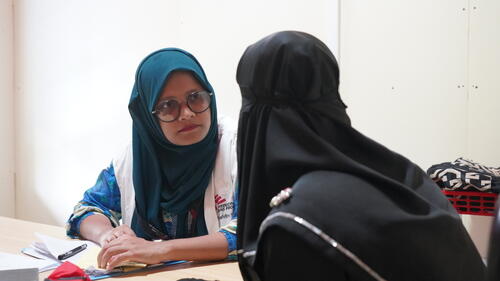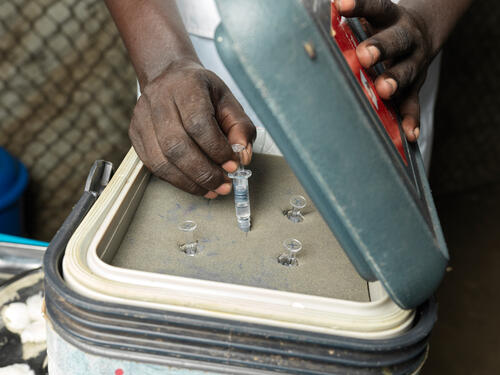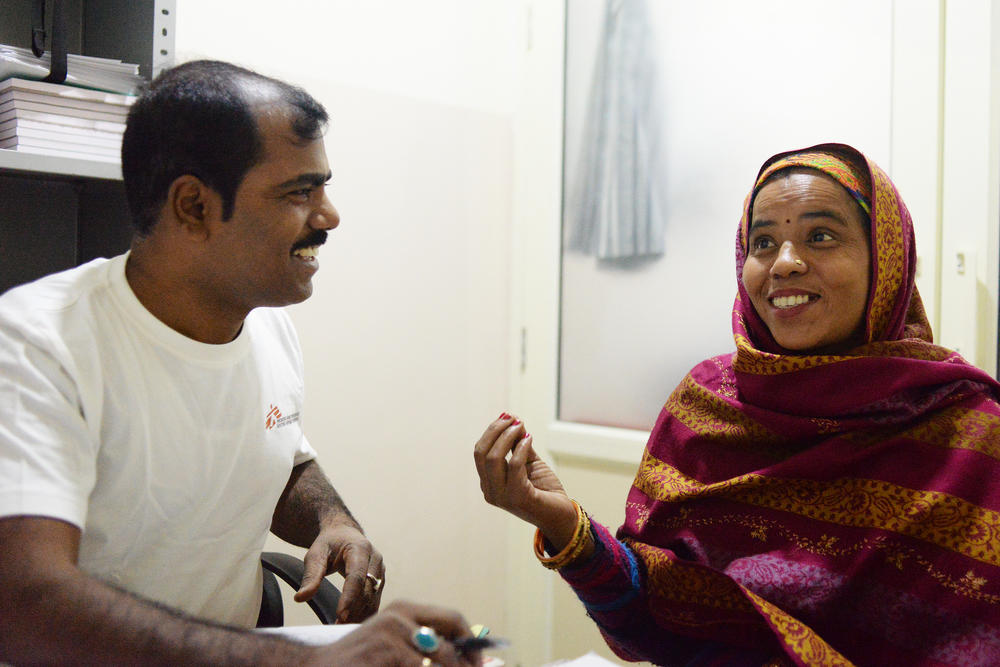Hepatitis
Hepatitis can be a silent killer.
While most people with viral hepatitis can make a full recovery, those who live with the virus long-term are at significant risk of developing scarring of the liver (cirrhosis) and liver cancer.
However, the condition is preventable and effective treatments to halt its progression are available. Médecins Sans Frontières/Doctors Without Borders (MSF) strives to provide access to these across the world.
What is hepatitis?
Hepatitis is an inflammation of the liver. Viruses are a common cause of this, in particular, viral hepatitis types A, B, C and E.
Hepatitis B and C are the seventh leading cause of mortality worldwide. Someone loses their life from a hepatitis-related illness every 30 seconds.
Worldwide, an estimated 58 million people are infected with hepatitis C alone.
What are the symptoms of hepatitis?
All four viruses cause a short-term infection, with some producing symptoms like fatigue, fever, loss of appetite and jaundice (yellowing of the skin). Complications can develop from some types, and, hundreds of thousands of people die from the virus each year.
Spotlight: Hepatitis in India
Hepatitis: Key facts
296,000,000
PEOPLE LIVE WITH HEPATITIS B OR C
78%
OF PRIMARY LIVER CANCERS ARE CAUSED BY VIRAL HEPATITIS
5,810
PEOPLE STARTED ON HEPATITIS C TREATMENT BY MSF IN 2023
MSF's work with hepatitis
Chronic viral hepatitis is a major problem worldwide. Rapid access to diagnostics and treatment are urgently needed.
MSF’s treatment of hepatitis is aimed at groups that are often harder to treat; often, the people we care for are from marginalised groups, such as those living with HIV and tuberculosis (TB), prisoners, people who use drugs and sex workers.
We aim to provide comprehensive care where treatment for HIV and TB is also available, as these infections are more common in people with hepatitis B and C.
In many of the places MSF works, the testing and treatment of hepatitis are often overlooked and underfunded, as the effects of the virus are not immediately seen.
But it is clear that the burden of the disease is great and that poor treatment has long term consequences for individuals and communities. To raise awareness, we train host country staff and work to bring hepatitis care into local services.
MSF has a number of hepatitis projects and is involved in research and advocacy to improve access for people with hepatitis in many parts of the world. Click on the map to learn more.
Our teams treat all four kinds of hepatitis
Short-term hepatitis A, B, and E infections do not often require treatment, but patients can be given supportive care like administering fluids if needed.
For chronic hepatitis B infection, antiviral drugs are used to reduce the risk of severe liver damage and increase the chances of survival. But treatment is not accessible in many resource-limited settings. The treatment is life-long in most cases and the management should include a comprehensive package of psychosocial support.
Chronic hepatitis C infection was previously treated with pegylated interferon, an expensive and burdensome treatment. It can cause severe side-effects like depression, which often leads to people stopping treatment early.
However, new oral treatments called ‘directly-acting antiviral agents’ have been developed. These are more effective at combating the infection and do not produce as many side effects.
MSF is using a simplified approach based on pangenetic regimens – treating all strains of the hepatitis virus – with oral antivirals for 12-24 weeks. The outcomes from these treatments are impressive and can lead to a complete cure.
However, access to this treatment, especially in resource-limited settings, is an ongoing issue. MSF's Access Campaign is campaigning to reduce the cost of medications and improve access to all.

Help us prepare for the next emergency
How can hepatitis be prevented?
All hepatitis virus infections are preventable.
Prevention of hepatitis A - transmitted through food or water contaminated by an infected person’s faeces – relies on access to clean water and functioning sewage disposal systems. MSF provides water and sanitation specialists in places like refugee and displacement camps.
Vaccination is the most effective method to prevent hepatitis B infection, as it is transmitted from mother to child during pregnancy and deliver and by contact with an infected person’s blood or other body fluids. The vaccine is widely available and very safe. MSF has vaccinated against the virus in countries like Central African Republic, Afghanistan, Syria, Pakistan and Nigeria. We focus on newborns, young children and other vulnerable groups.
Preventing hepatitis C – transmitted by contact with an infected person’s blood, often through the use of unsterilised needles – relies on reducing the risk of exposure by promoting safe handling and cleaning of needles, as well as improving access to clean blood for transfusions.
Hepatitis E prevention relies on the same methods as hepatitis A, with MSF having responded to outbreaks of the virus in places like South Sudan.
Hepatitis: News and stories



